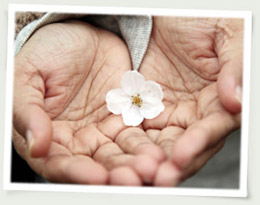
Self-help for caregivers
Posted in Health & Wellness on March 2, 2011. Last modified on February 26, 2021. Read disclaimer.
Are you tending for someone in need -- such as a elderly or disabled relative or spouse in the home, a friend or neighbor, or someone in hospice care?
If so, you're not alone. Most of us will be called on to perform unpaid caregiver responsibilities at some point in our lives -- whether that might involve helping another with their shopping or cleaning, handling their finances, monitoring their medication schedule, or providing what we may consider to be "traditional" caregiver tasks such as helping with bathing, cooking and dressing.
+ Free Shipping & Returns on Eligible Items.
(*Amazon's Top 100 list updated hourly.)
On top of this, more than half of the 44 million Americans who perform unpaid care giving tasks do so while holding down "regular" jobs.
Caregivers can be unsung angels of mercy for those in need -- but their own needs can too often be ignored. Researchers have identified several factors that can cause caregiver stress:
- feeling isolated: losing social, emotional, financial or practical support
- feeling overwhelmed: when caregivers are expected to do too much or have health problems of their own
- feeling guilty when mistakes are made or being less than "perfect"
- feeling unappreciated (or resentful) when the person being cared for doesn't respond (or improve) as we'd like
For your own well-being as a caregiver, it's important to take good care of yourself while you do the same for someone else. (Over half of all caregivers say that their health has gone "downhill" due to caregiver responsibilities.) Medical experts offer these steps to help:
Steps for caregivers' self-health
- Don't discount the power of prayer. 73% of caregivers find stress relief through prayer.
- Develop a support network of family and friend whom you can turn to for advice.
- Stay on schedule with your own medical needs: checkups, screenings and tests.
- Say "no" when too much is requested or demanded of you.
- Organize your work with to-do lists. (This can not only help you to get more done, but it can be rewarding to check off tasks and look back to see how much you accomplish.)
- Maintain healthy eating habits -- for your sake, and your loved one's.
- Get plenty of rest. Short naps, when possible, can be big energy boosts.
- Stay active. Enjoy any kind of physical activity at least 15-30 minutes per day: walking, gardening, cleaning or just going up and down stairs can help.
- Manage stress. Giving yourself time to relax is an important part of self-care.
- Realize that you do not need to be the "perfect" caregiver. No one is perfect. All that can be expected of you is that you do your best.
When you think about it today, be sure to take time for yourself physically, emotionally and spiritually.
Caregiver's Bill of Rights
Caregivers have rights, too. These affirmations (author unknown) may comfort and support you while you do the same for your loved one.- I have the right to take care of myself. I have the right to seek help from others.
- I have the right to maintain parts of my life that do not include the person I care for.
- I have the right to get angry, be depressed and express difficult feelings once in a while.
- I have the right to reject any attempt to control me through guilt or anger.
- I have the right to consideration, affection, forgiveness and acceptance.
- I have the right to take pride in what I'm doing.
- I have the right to protect my individuality.
Sources:
http://www.womenshealth.gov/publications/our-publications/fact-sheet/caregiver-stress.cfm
Philadelphia Tips for Healthy Living...
Want to lessen your chances of catching a cold or the flu?
Gargling with water may help
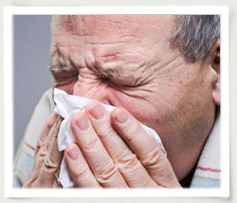
Kyoto, Japan - Regular gargling with water may help protect against upper respiratory infections in healthy people, researchers from Kyoto University School of Public Health reported in The American Journal of Preventive Medicine.
Scientists recruited 387 healthy volunteers between the ages of 18 to 65 and followed them for 60 days during the cold and flu season. Participants were assigned to water gargling, diluted topical disinfectant gargling and non-gargling groups (volunteers in the gargle groups were asked to gargle three times a day).
Those who gargled three times a day were over 30% less likely to contract upper respiratory infections. Those who gargled and contracted infections reported that gargling helped ease the symptoms. Suggested recipe: dissolve 1/4 to 1/2 teaspoon of salt into an 8 oz. glass of warm water. Gargle for a few seconds before spitting out solution. If you find this too unpalatable, try adding lemon and/or honey.
Other steps for avoiding the cold include:
- wash your hands frequently and avoid touching fingers to eyes and nose
- keep commonly touched surfaces like door knobs, phones, etc., disinfected
- avoid large groups or classes, if possible. The fewer people you are exposed to, the less your chance of exposure
- get adequate sleep
- don't smoke and avoid exposure to secondhand smoke.
- some research suggests that it may help to eat or drink yogurt, miso soup, kefir or other fermented foods that contain live, active probiotic cultures (good bacteria)
- keep your immune system strong by eating a healthy diet, managing your stress and getting regular exercise
Tips for battling a cold
According to Harvard Medical School's Anthony Komarof --- once you already have a cold, time is the only certain solution. Antibiotics will not help (colds are caused by viruses whereas antibiotics help the body battle bacteria) and may even make the condition worse by contributing to antibiotic resistance. The average cold lasts for 1-2 weeks and is most contagious for those first 2-3 days. In the meantime, while your body is battling the virus, the most beneficial steps you can take are:
- Gargling with salt water, as described above.
- Staying well hydrated by drinking water, juice, or broth. Avoid alcohol, caffeinated beverages and sodas.
- Gently flushing your sinuses with saline solution or running a humidifier to loosen congestion.
- Getting plenty of rest.
You can also minimize the discomfort with over the counter decongestants and pair relievers -- but be careful. When combining medications, such as Tylenol PM and Tylenol for daytime use, it is easy to consume unsafe levels of acetaminophen. Also, cold medications are not suggested for children under the age of 6.
Though the research has thus far been inconclusive, some studies suggests that the duration or intensity of a cold can be minimized though nutritional supplements.
Low-grade inflammation at a young age associated with lower intelligence
Stockholm, Sweden - Inflammation - it's the body's normal body response to injury (burns, cuts, breaks or exhaustive exercise) as well as foreign invaders (tobacco smoke, allergies, toxins, medicines, diseases, alcohol, viruses, parasites, bacteria, pollution, a diet rich in saturated fats - even splinters, dust and debris). It is critical to our healing and protective processes but, when it becomes chronic it becomes destructive.

Medical conditions believed to be linked to chronic inflammation include Alzheimer's disease, asthma, some cancers, chronic pain, type 2 diabetes, heart disease and autoimmune diseases such as rheumatoid arthritis and lupus. Now, we may have to add lower intelligence to that list.
According to research reported in Brain, Behavior and Immunity, inflammation is associated with lower intelligence for those as young as 18 years of age.
Researchers at the Karolinska Institute in Stockholm, Sweden used data on 49,321 Swedish males aged 18-20 who had registered for military service in 1969-1970. Using IQ test results and a measurement of inflammation, they found that low-grade inflammation affected cognitive (mental) ability even in those as young as 18-20.
Scientists explored mortality rates between 1971-2006 and also found an association between inflammation and premature death risk.
![]() How do you reduce inflammation in the body?
How do you reduce inflammation in the body?
1) Don't smoke and 2) don't abuse alcohol since both are known causes of inflammation.
3) Practice good dental health and 4) address chronic infections since bacteria from gum disease and repeated cystitis (most commonly Urinary Tract Infections) have been associated with chronic inflammation. Similarly, 5) minimize exposure to chronic allergens (skin, respiratory, food, etc.). 20% of us suffer from allergies and there is evidence to suggest that chronic allergy-related inflammation may contribute to brain inflammation. 6) Minimize stress, 7) manage your weight and 8) eat a healthy diet. Obesity can contribute to systemic inflammation and some dietitians believe that eating a Mediterranean-style diet may help to minimize chronic, low-grade inflammation in the body.
 High Interest Topics:
High Interest Topics:
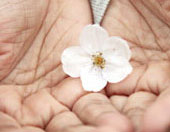 Support for care givers
Support for care givers What's better: Organic, local or conventional produce?
What's better: Organic, local or conventional produce? What causes flatulence?
What causes flatulence?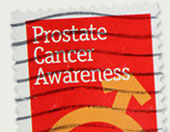 Prostate cancer symptoms and risk factors
Prostate cancer symptoms and risk factors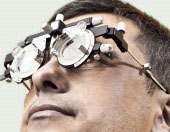 Early detection of eye diseases
Early detection of eye diseases Reduce stress with a gratitude journal
Reduce stress with a gratitude journal Home energy savings checklist
Home energy savings checklist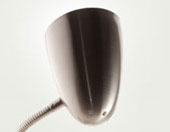 Quick tips for cutting your utility bills
Quick tips for cutting your utility bills